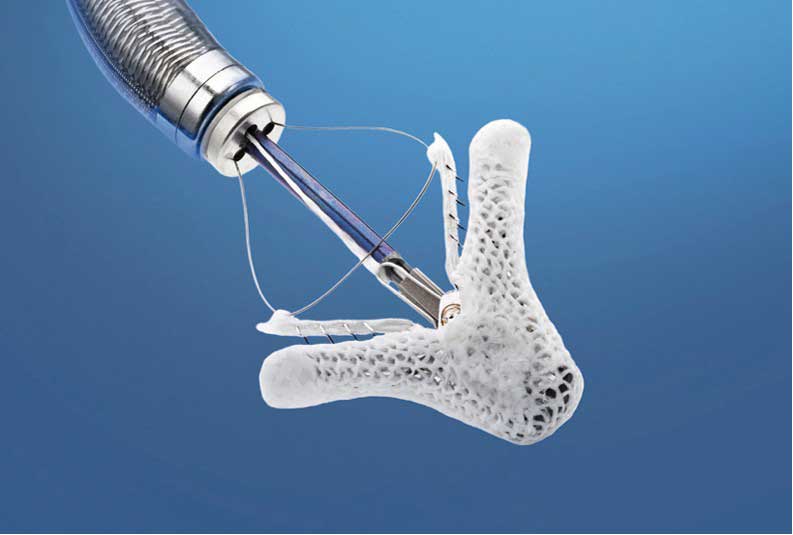<< Back
Study: MitraClip Device a ‘Game-Changer’ for Heart-Failure Patients

September 25, 2018
Until now, patients with serious heart failure caused by leaky valves were treated so they felt a little better but the disease relentlessly stunted their life expectancy relentlessly. Recent research published in the New England Journal of Medicine, however, gives hope to these patients, according to Dr. Sabet Hashim, chair of cardiac surgery and co-physician-in-chief of the Hartford HealthCare Heart & Vascular Institute.
“This study is a game-changer,” says Dr. Hashim, who was on hand for the research announcement at a California medical meeting.
Researchers reported that inserting the tiny MitraClip device into the heart not only stems blood leakage from valves left damaged by heart disease but reduces death and hospitalization, and drastically improves quality of life.
“The most important finding has been that MitraClip reduces the amount of mitral valve regurgitation, which has a beneficial effect on the patient regardless of damage to the heart muscle,” says Dr. Hashim, whose program has inserted almost 80 of the devices.
Heart failure damages the organ so it pumps poorly and, to compensate, becomes enlarged. In the process, the mitral valve, which controls the flow of blood from the heart’s left atrium to its left ventricle, cannot function well and blood leaks into the heart and lungs. Poorly circulating blood leaves patients often breathless after the slightest effort.
Inserted, the MitraClip holds the mitral valve’s two flaps together so it functions properly. While a smaller French study found no patient benefit from the device, Dr. Hashim says the cohort of patients examined in each study was different. The French study examined all patients receiving the clip, while the American study more specifically targeted patients already receiving standard medical therapy for their condition to receive the device.
In the American study, patients with secondary mitral regurgitation were randomly given standard medical treatment and the MitraClip or standard medical treatment alone. Of those in the latter group, 151 were hospitalized for heart failure in the ensuing two years and 61 died. In the group receiving both treatment and clip, 92 were hospitalized in the same period and 28 died.
“This gives us more hope, showing us that with good conditions, this clip works,” Dr. Hashim says. “If we clip it well and give good adjutant therapy, the patient will see improvement in both quality of life and longevity. This is huge and new.”
In addition, he says millions of patients can now receive the MitraClip despite being gravely ill because it does not require arduous open-heart surgery to insert.
“These are people who we previously would have thought to not be candidates for surgery because they were at higher risk,” he says. “They had no other options for treatment.”
Because the clip affords greater life expectancy in addition to improved quality of life, he says the benefits of surgery finally outweigh the risks.
The Heart & Vascular Institute is a comprehensive heart failure program that, earlier this year, earned the highest composite quality ratings for mitral valve repair and replacement (MVRR) from the Society of Thoracic Surgeons National Database. The three-star rating was also awarded for combined MVRR and coronary artery bypass grafting. Only the top 10.71 percent of hospitals receive the three-star rating for MVRR.
“We have had similar success with MitraClip here,” says Dr. Hashim. “We are enthusiastic about the hope we can give our patients about this procedure now.”
For more information about the Heart and Vascular Institute Mitral Valve Program, click here.